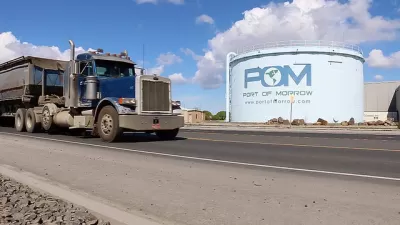Despite continued dispute over their effectiveness, carbon taxes and cap-and-trade programs in the United States and Canada have raised billions of dollars. And China has now followed suit.

This editorial from the New York Times advocates for carbon pricing programs, many of which have seen success across North America.
The revenue from carbon pricing schemes, which is considerable, can be funneled to clean energy development. From the article: "Many economists regard carbon taxes as the simpler and more elegant solution, and cap-and-trade systems like the one that failed in the United States Congress as complex and hard to explain. But both systems effectively raise the price of using fossil fuels, which encourages utilities and other producers to generate more energy from low-carbon sources like solar, wind and nuclear power."
Opponents of carbon pricing, especially direct taxes, argue it will have economic repercussions. But Canada may have a way around that. "British Columbia, which is home to 4.7 million people, has placed the highest price on emissions in North America, taxing a ton of carbon emitted at 30 Canadian dollars, or about $21 [...] One big appeal of its system is that it is essentially revenue-neutral. People pay more for energy (the price of gasoline is up by about 17 cents a gallon) but pay less in personal income and corporate taxes."
FULL STORY: Proof That a Price on Carbon Works

Planetizen Federal Action Tracker
A weekly monitor of how Trump’s orders and actions are impacting planners and planning in America.

San Francisco's School District Spent $105M To Build Affordable Housing for Teachers — And That's Just the Beginning
SFUSD joins a growing list of school districts using their land holdings to address housing affordability challenges faced by their own employees.

The Tiny, Adorable $7,000 Car Turning Japan Onto EVs
The single seat Mibot charges from a regular plug as quickly as an iPad, and is about half the price of an average EV.

Seattle's Plan for Adopting Driverless Cars
Equity, safety, accessibility and affordability are front of mind as the city prepares for robotaxis and other autonomous vehicles.

As Trump Phases Out FEMA, Is It Time to Flee the Floodplains?
With less federal funding available for disaster relief efforts, the need to relocate at-risk communities is more urgent than ever.

With Protected Lanes, 460% More People Commute by Bike
For those needing more ammo, more data proving what we already knew is here.
Urban Design for Planners 1: Software Tools
This six-course series explores essential urban design concepts using open source software and equips planners with the tools they need to participate fully in the urban design process.
Planning for Universal Design
Learn the tools for implementing Universal Design in planning regulations.
Smith Gee Studio
City of Charlotte
City of Camden Redevelopment Agency
City of Astoria
Transportation Research & Education Center (TREC) at Portland State University
US High Speed Rail Association
City of Camden Redevelopment Agency
Municipality of Princeton (NJ)




























